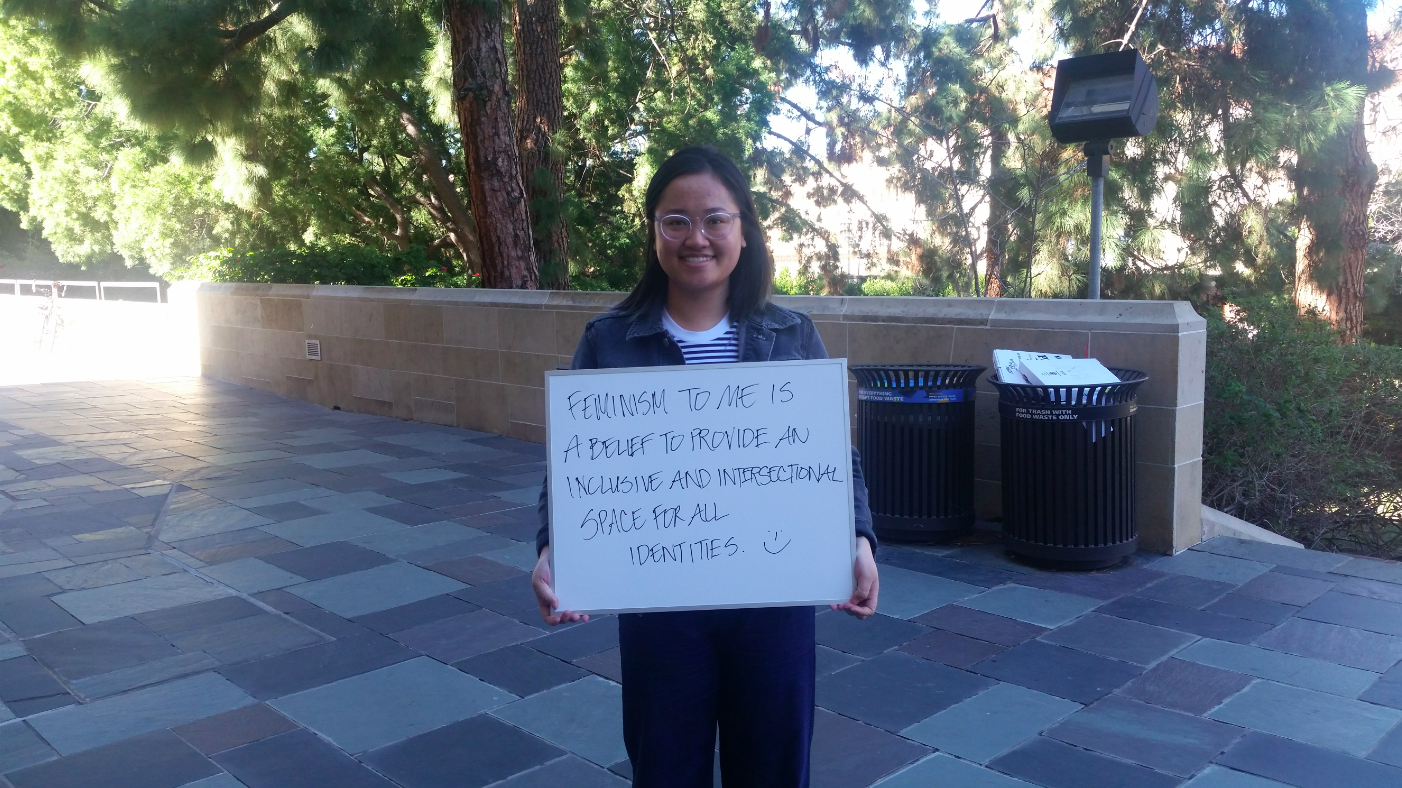Featured UCLA Feminist: Cindy Tran

Photo by Vivian Giang
“Feminism to me is the belief in providing an inclusive and intersectional space for all identities.”
Feminism was a gateway to a greater understanding of social issues for Cindy Tran, a third-year gender studies major. It taught her to recognize not only equal pay and sexist double standards, but also “the injustices and inequalities that [marginalized groups] face because of patriarchy, capitalism, and white supremacy.”
Cindy saw the patriarchy at work as a child, in how her culture held her mother and father to different standards.
“Growing up I noticed the unfair dynamic that was present in my parent’s relationship. In Vietnamese culture, the woman in the relationship had to accommodate the man by having already finished prepping the food for him as he walks in the door. But my mother had the same day job as my father. I saw the stress and pain that it gave my mother and it made me pissed off because I didn’t feel like it was right. “
This was Cindy’s “feminist awakening,” so to speak—examining her culture helped her realize that there were inequalities in how men and women were treated. This new knowledge, supplemented by Cindy’s identity as a person of color, helped solidify her stance as a feminist.
As a woman of color, Cindy was drawn to works by black feminists, which gave her an understanding of intersectionality. Specifically, works by Angela Davis, Patricia Hill Collins, and bell hooks were key in helping her form the values that inspire her today—including the importance of deconstructing and decolonizing society’s beliefs.
Cindy believes that future of feminism is bright, so long as feminists remain aware and critical of problems within the feminist movement, such as white feminism and the increasingly commercialized nature of mainstream feminism. “Feminism is anti-capitalist, and we should continue to keep it that way. Stop commercializing feminism! It’s very ironic and hypocritical.”




